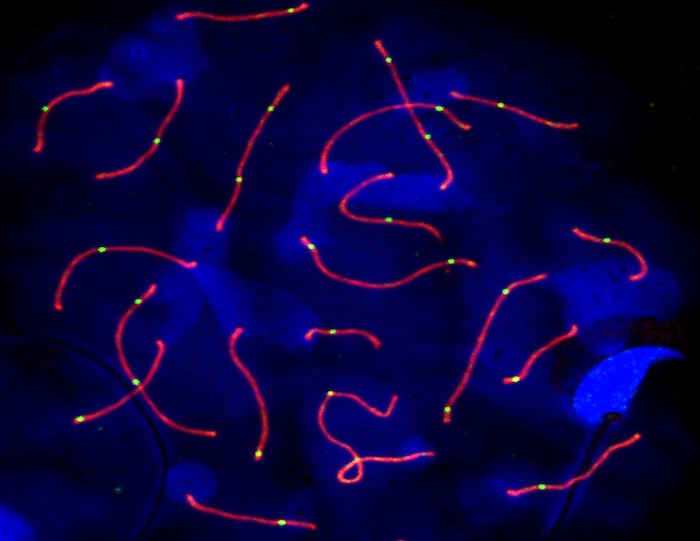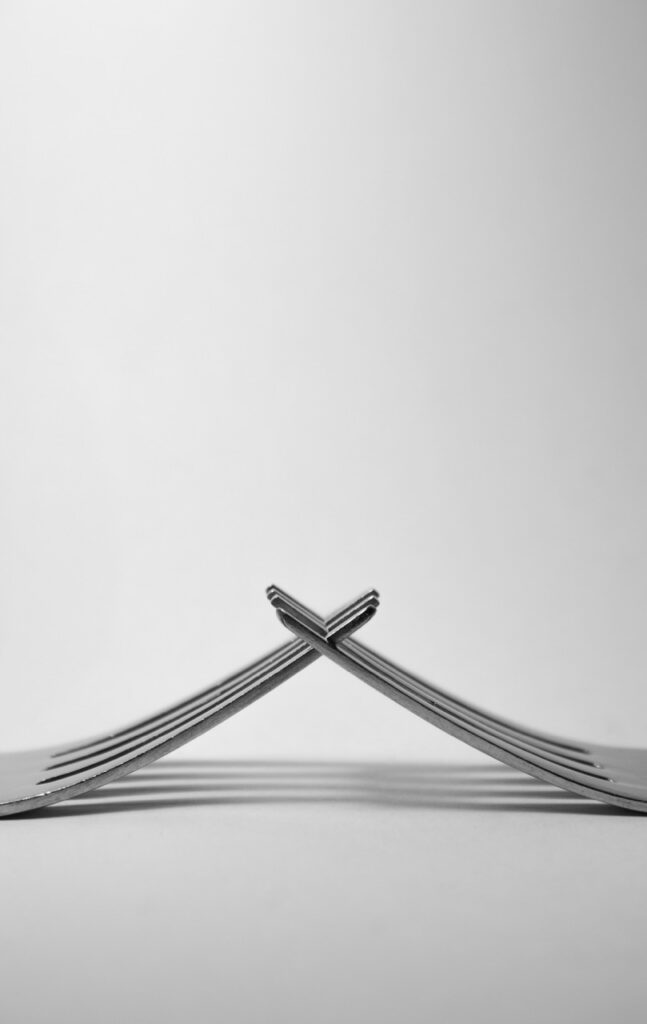Meiotic recombination in a commonly used laboratory mouse strain showed sensitivity to dietary changes.
Recombination within the germline is a tightly controlled process. But new research suggests that nutrition may introduce some variability into this crucial step in genetic transmission, which could have implications for the design of future genetics studies.
A study published in GENETICS found that genome-wide recombination rates in the spermatogenesis of adult male mice were sensitive to dietary changes, but that the observed changes in crossover frequency differed depending on genetic background.
“Our findings were very unexpected,” says senior author Elena de la Casa-Esperon. “It was hard to believe that a small change in diet could affect recombination, something we thought was very much a protected process.”
Unexpected Environmental Effects
Not many studies had previously examined the impact of environmental factors on recombination and most had studied maturing germline cells in utero or in juvenile animals. In contrast, de la Casa-Esperon and her team used adult males from genetically diverse inbred strains.
“We found that there was a gap in knowledge,” says de la Casa-Esperon. “There were two classic studies in flies and yeast that hinted at the possibility of nutritional effects on levels of recombination, but the possibility of diet effects has largely been neglected in other studies.”
The researchers used immunohistochemistry to evaluate crossover frequency after 24 days of feeding each group of mice one of three diets: a standard “maintenance” diet, a 50% “undernourishment” diet, or a nutrient-rich “breeding” diet.
In two of the three genetic strains studied, recombination rate stayed relatively constant following a switch to the restrictive “undernourishment” diet, indicating that tight control over reproduction is maintained even under stressful conditions. However, the nutrient-rich diet caused a reproducible increase in recombination levels in C57BL/6 mice, one of the most commonly used strains of laboratory mice.
“This wasn’t the kind of study where you find a dramatic effect that’s easy to see—the changes we observed were small, but with large numbers we could see that they were consistent,” says de la Casa-Esperon. “As a scientist looking at these types of phenomena, first you have to convince yourself, then you have to convince others.”
Cautionary Findings and Lingering Questions
Despite her initial surprise, de la Casa-Esperon is now convinced that other researchers need to realize that germline genetic information is more sensitive to environmental factors than previously thought, which could have transgenerational and evolutionary implications. “The take-home message is that there are many environmental variables that affect the traits we study, and we need to be vigilant about the potential effects of these variables on our results,” she says.
She also points out that dietary changes throughout lifetime may be a common occurrence in animal facilities; for instance, pregnant and nursing females are sometimes fed with nutrient-rich “breeding” chows while offspring are later switched to leaner “maintenance” diets. Hence, dietary regimes must be controlled and reported in recombination studies, as they can affect the results.
Next research steps include attempting to isolate the diet components that significantly contribute to changes in recombination levels. Phytoestrogens are promising candidates, since they are known to have epigenetic effects in germline—and these could, in turn, affect recombination. De la Casa-Esperon hopes other groups will study whether diet—and other environmental factors—can alter recombination rates in other species.

CITATION:
Diet effects on mouse meiotic recombination: a warning for recombination studies
Angela Belmonte-Tebar, Estefania San Martin Perez, Syonghyun Nam Cha, Ana Josefa Soler Valls, Nadia D Singh, Elena de la Casa-Esperon
GENETICS
2022:iyab190














